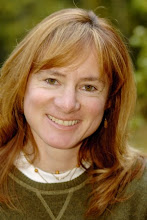The first story I ever wrote – about an effort to build a school in a sister city overseas – appeared in 1991. I had been working at the regional newspaper for about a year and had worked my way from editorial assistant to full-fledged reporter, and I was shaking at the thought of my words going out for the whole world (well, at least about 90,000 southwest Virginia readers) to see.
All of a sudden I had gone from the relative anonymity of public service announcement writing, compiling wedding listings and school lunch menus to putting something out there that had my NAME on it, undeniably me, for better or worse.
It’s sort of like standing naked in front of a doctor, all vulnerable and nerve-wracking. Worse though, your critics are anonymous, letter-writing people who never have to make their jabs up close and personal, like a doctor.
That was some thousands of stories ago – I long ago stopped keeping track of the stories I’ve written – and it has definitely gotten easier. But there’s always a part of me that still quakes a little with every published piece.
And to be honest, I think that is as it should be. While I’ve gained a lot more confidence with my writing over the years, I also am keenly aware of my very “human-ness,” and the reality that mistakes will happen. It keeps me honest, one my toes, when writing, and that is probably a good thing.
It seems that no matter how hard one tries and no matter how meticulously one thinks they have worked on a story, there will be times that mistakes will happen.
They can, and do, happen to us all, and the degree of mistake varies as well. I’ve made errors ranging from the omission of a letter that creates a misspelling (“She hats that soup” vs. “She hates that soup”) to the misspelling of a name (an egregious mistake because Rule No. 1 in journalism is “Always doublecheck spellings of names.”) to getting dates, phone numbers or other critical information wrong. They were honest errors everyone and all journalists make from time to time – don’t let anyone tell you they don’t, either.
The challenge, of course, is to always strive for that perfection, to approach each story as if it will be flawless and most of the time, that’s exactly what happens.
But those aren’t the stories worth telling. It’s the cringe-inducing “How could I have done that?” stories that, as we say in the writing business “Make the Headlines.”
Worst error from my rookie years: I was writing about a meeting of the Daughters of the American Revolution (DAR), an antiquated posse of old ladies who get together to relive the glory years of pre-computer, pre-teenage angst, pre-automobiles, shopping centers, McMansions on the hill (other than the plantations of course...). Other than that, I'm not exactly sure what they do.
So these women were already intimidating enough, looking me over (I was just 24, straight out of college and very wet behind the ears as far as journalism goes), approving or disapproving of my outfit, watching my every move for signs of "good breeding." It was all very uncomfortable, but I managed to smile and nod and scribble furiously the notes in my reporter's notebook.
I rushed back to the office to write up the story, feeling accomplished and successful at a long day' worth of work. I doublechecked spellings of names, made sure the facts were correct and filed the story under the old computers we used for publishing at the time.
Then I drove home, probably went for a long run or relaxed on the front porch and waited for another day.
It came -- all too soon. No sooner had I woken up when my home phone rang unforgivably early (reporters generally don't even start their work day until 10 a.m.). I answered, bleary eyed and half awake and was immediately taken to task by a very old and angry sounding woman who was none too happy with my story.
I will spare you the excruciating details of the rest of my day, as the phone rang at the office repeatedly, each one an angry spinster scoffing at my ignorance. A few of the calls even made it to my editor, the daughter of a Daughter of the American Revolution, who, thankfully, took pity on my stupidity and chalked it up to experience.
The mistake: In my zeal to get every fact, name, date, etc. correct, I swiftly wrote a sentence in the story about the people for whom the Daughters of the American Revolution hold their meetings. But instead of calling them the "ancestors" of the DAR, I called them the "descendents." Stupid mistake, the result of a mind typing faster than it edits, but it made it into the paper, past the editors, past the copy editor, and now I looked like the moron I felt I was.
Fortunately, this was a minor error in the big scheme of things -- I didn't defame anyone or create huge legal problems for the paper. I'm sure I've made worse errors since.
But that one scarred me for life. Because I know there are (or "were" -- this was many years ago, after all...) a bunch of casserole baking, gray-haired women out there in a certain region of Virginia who shake their heads and cluck at "stupid kids these days."
Subscribe to:
Post Comments (Atom)


No comments:
Post a Comment